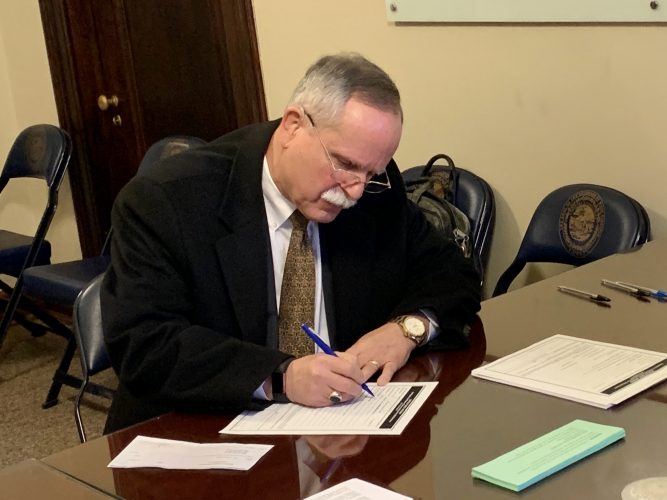WV Rep. McKinley Questions Biden Administration Environmental Justice Report

By Steven Allen Adams
June 5, 2021 - A report last month from a White House advisory group on ways to invest in disadvantaged communities affected by climate change and fossil fuels received praise from one Appalachian group, though 1st District Congressman David McKinley is more concerned about what the report recommends against.
The White House Environmental Justice Advisory Council’s report gives recommendations on several environmental justice initiatives, including “Justice40,” an effort to make sure that 40 percent of federal investments in climate change mitigation plans benefit minority and disadvantaged communities.
Council co-chairs Richard Moore and Peggy Shepard summarized the group’s recommendations in a May 21 letter to Brenda Mallory, chairwoman of the Council on Environmental Quality. They also encouraged President Biden and cabinet officials to begin implementing Justice40 immediately.
Justice40 anticipates sunsetting investment in fossil fuels, plastics, dangerous chemicals and nuclear energy, and replacing them with renewable energy sources by 2030.

Rep. David McKinley
For McKinley, R-W.Va., ranking Republican member of the House Energy and Commerce Committee’s Subcommittee on Environment, it is the part of the Justice40 report listing “examples of the types of projects that may benefit a community” that cause him concern.
This is a bizarre approach toward dealing with the environment,” McKinley said. “This is a dangerous approach, and we’re more concerned that this is showing the underbelly of the President’s vision for how he wants to deal with fossil fuels.”
Some of the kinds of projects the council advises against supporting include fossil fuel procurement, development, and infrastructure repair that extends the life of coal and natural gas-fired power plants; carbon capture and sequestration and direct air capture; nuclear power; expansion of highways or road improvements other than for electric vehicle charging stations; and pipeline creation, expansion, or maintenance.
McKinley is concerned that the council, being hand-picked by the Biden administration, does not include people and groups directly affected by the group’s recommendations.
“This is an indication of where the administration is leaning,” McKinley said. “You don’t see on this advisory committee people from the industry, you don’t see building trades, you don’t see anyone from the coal industry. This is an environmentally sensitive group that he selected for this, so I’m not surprised they came out with such harsh tones.”
McKinley is not a climate change denier, but he would like to see more funding for research and development to make greenhouse-mitigating technologies – such as carbon capture and sequestration – a reality.
Research on capturing emissions from power plants and either storing those emissions underground or finding other uses for the gases would protect the environment and keep people employed in the coal mines and natural gas plants, he said.
“Instead of taking this, I think, kind of a sophomoric approach of just doing away with the product, why don’t we work with science and find a way that we can capture the carbon and continue to use our product, keep our jobs healthy, keep our environment solid with it, and our economy solid with it,” McKinley asked.
Some of the recommendations for Justice40 initiatives include investing in clean energy and renewable energy projects; regenerative agriculture and green infrastructure; clean energy job training; lead water pipe replacement; clean drinking water and environmentally sound sanitation; programs to reduce greenhouse gases and support economic, social, and environmental benefits; and public transportation.
Chelsea Barnes, the legislative director for Appalachian Voices, is working with members of Congress to include climate change infrastructure funding in Biden’s American Jobs Plan currently being negotiated between the White House and U.S. Senate Republicans led by U.S. Sen. Shelley Moore Capito, R-W.Va.
McKinley said the cure for climate change could be worse than the disease itself.
“We mine coal in 26 states. Each one of those states (are) going to be negatively impacted If this kind of report gets traction,” McKinley argued. “We’ve got to stop it early and point out that if you go this route and you haven’t looked at what the alternatives are, these people are not going to have a job.”

